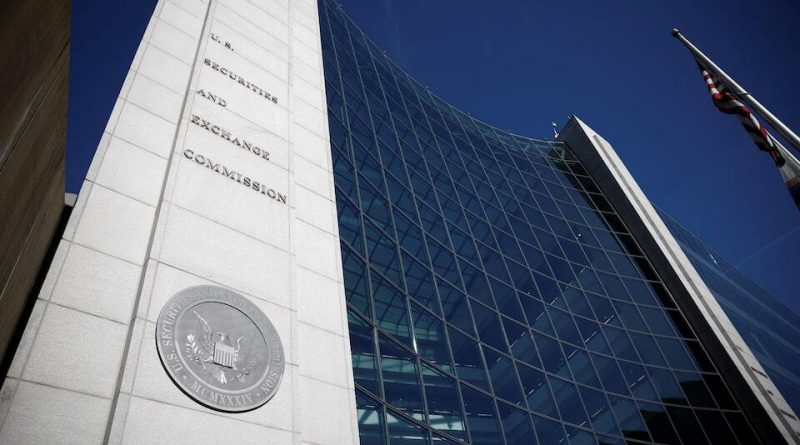SEC’s Careful Oversight on Leveraged ETFs Highlights Its Commitment to Market Integrity and Investor Protection
The U.S. Securities and Exchange Commission (SEC) takes a cautious and responsible stance on newly proposed leveraged ETFs, reaffirming its role as a guardian of investor safety and market transparency, even amid government shutdown challenge
In an evolving financial landscape where innovation often runs ahead of regulation, the U.S. Securities and Exchange Commission (SEC) has reaffirmed its central role as a stabilizing force for investors and markets alike.
Speaking to Reuters, the SEC emphasized that it remains “unclear” whether recently proposed 3x and 5x leveraged exchange-traded funds (ETFs) would meet approval requirements, underlining the agency’s commitment to prudence, transparency, and investor protection.
Despite the ongoing U.S. government shutdown, which has limited the SEC’s staffing and review capacity, the agency’s leadership continues to monitor new filings closely.
This proactive approach demonstrates the regulator’s determination to ensure market integrity and prevent excessive risk exposure to retail investors, even during operational challenges.
SEC’s Role in Safeguarding Investor Confidence
Over the past decade, ETFs have transformed the global investment landscape, offering accessibility, diversification, and liquidity to millions of investors.
However, as markets evolve, new financial instruments—such as leveraged ETFs—have introduced complexities that demand vigilant oversight.
Leveraged ETFs, which amplify returns (and potential losses) through derivatives, are designed to track the daily performance of an underlying asset or index by multiples such as 2x, 3x, or 5x.
While these instruments can yield significant short-term gains for sophisticated investors, they also magnify volatility, raising the stakes for everyday market participants.
“The SEC’s focus is not on restricting innovation, but on ensuring that financial innovation does not come at the cost of investor stability,” said a senior market strategist at a New York-based investment firm.
“Their balanced approach gives confidence to global markets that the U.S. remains a safe and transparent financial hub.”
Ensuring Compliance Amid Uncertainty
Brian Daly, Director of the SEC’s Division of Investment Management, told Reuters that the agency has received numerous registration filings from asset managers seeking to issue 3x and 5x leveraged, equity-linked ETFs.
However, Daly noted that it remains unclear whether these products comply with Rule 18f-4, commonly known as the Derivatives Rule, which limits leverage in registered investment companies to roughly 2x.
This rule, established to protect investors from overexposure and systemic risks, ensures that ETFs maintain appropriate levels of transparency and risk control.
“The SEC’s caution here is a sign of good governance,” said Amrita Nandakumar, President of Vident Asset Management. “It shows that the agency prioritizes investor education and market integrity over rushing new products to market.”
Despite the limited operational capacity during the shutdown, the SEC continues to review filings and identify potentially high-risk products.
This consistency sends a strong message that investor protection remains the agency’s foremost priority—regardless of political or logistical challenges.
Innovation With Accountability
The latest filings, including those from Volatility Shares, which proposed 27 leveraged ETFs—among them the first-ever 5x single-stock ETF—illustrate the growing appetite for high-risk, high-reward financial products.
Such ETFs seek to quintuple the daily returns of specific stocks or indexes, creating opportunities for amplified profits but also significant downside risk.
Market analysts have welcomed the SEC’s restraint, noting that past performance of leveraged ETFs underscores the need for caution. A Morningstar analysis revealed that over half of leveraged ETFs launched more than three years ago have closed, with nearly 17% losing over 98% of their value.
“This underscores why the SEC’s cautious stance is vital,” said Bryan Armour, a senior ETF analyst at Morningstar. “The regulator’s prudence could help avoid instability that hurts small investors most.”
While the SEC has historically been open to innovative market strategies, this new wave of ultra-leveraged ETFs tests the boundaries of risk management. The agency’s response—measured and analytical rather than dismissive—signals that innovation must always coexist with accountability.
Investor Protection at the Core
The SEC’s position also reassures both institutional and retail investors that regulatory vigilance will not wane, even amid political gridlock. This steady hand helps maintain trust in the U.S. financial system—trust that forms the foundation of global market leadership.
As Amrita Nandakumar pointed out, “The SEC’s continued oversight sends a strong message that U.S. markets will always be driven by responsibility, not speculation.
It’s a reminder that regulation, when balanced, strengthens innovation rather than hindering it.”
The Commission’s proactive communication, even under staffing constraints, reflects an agency dedicated to maintaining high standards of transparency.
Its review process ensures that complex products like leveraged ETFs are thoroughly evaluated before entering the public domain.
Balancing Innovation and Stability
As the financial world continues to evolve, the SEC’s careful approach offers a blueprint for balancing innovation with investor safety.
By maintaining open dialogue with asset managers and ensuring compliance with long-standing rules, the agency reinforces confidence in the robustness of the U.S. regulatory framework.
Investors and industry participants alike can take heart in the fact that, while markets chase innovation, the SEC remains focused on its enduring mission—to protect investors, preserve fair markets, and promote capital formation responsibly.
Ultimately, this episode showcases a reassuring truth: in the ever-changing world of finance, thoughtful regulation is not a barrier to progress—it is the foundation that keeps markets strong, stable, and trustworthy.



